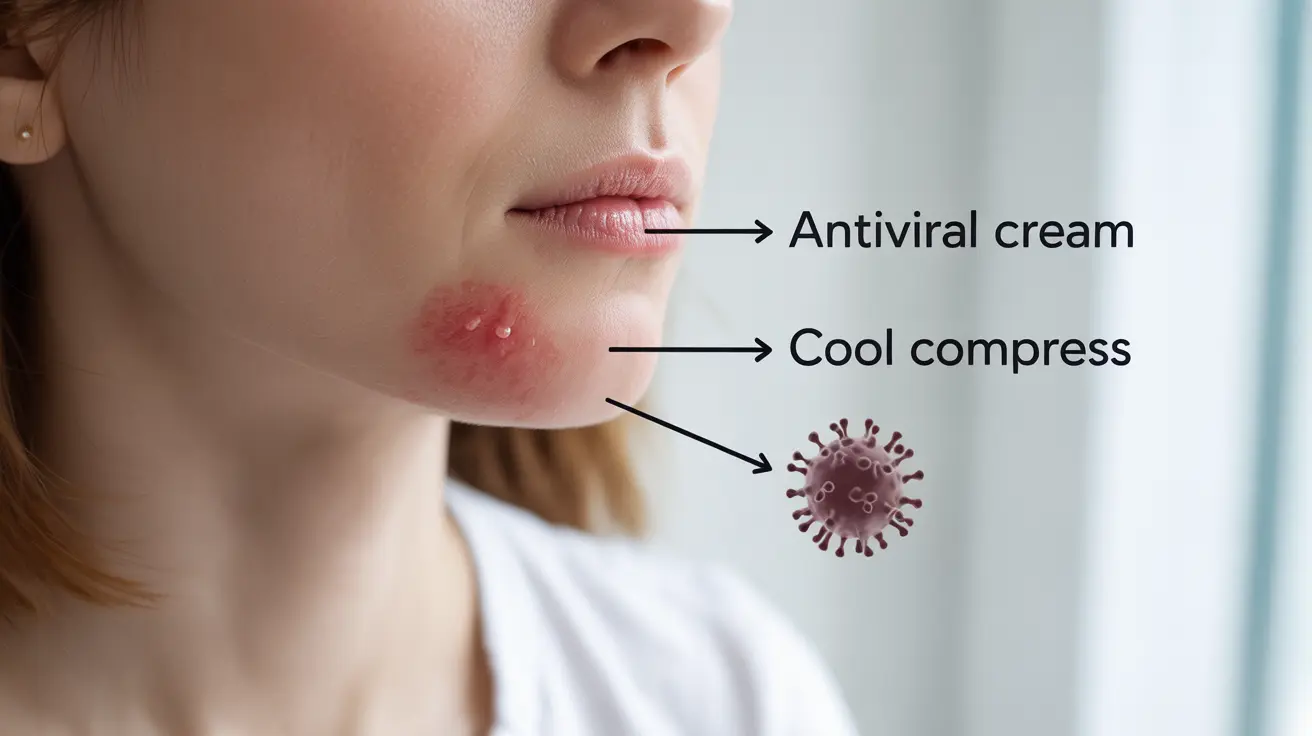Developing a cold sore on your chin can be both uncomfortable and concerning. While cold sores commonly appear on the lips, they can also affect the chin area, causing similar symptoms and requiring specific attention. Understanding the causes, recognizing early signs, and knowing effective treatment options can help you manage this condition more effectively.
These viral blisters, caused by the herpes simplex virus (HSV-1), can appear anywhere on or around the mouth, including the chin. When they occur on the chin, they may present unique challenges for treatment and concealment, but they follow a similar pattern to cold sores in other locations.
Understanding Cold Sores on the Chin
Cold sores on the chin develop when the herpes simplex virus becomes active in the nerve endings beneath the skin. While the virus typically favors the lip area, factors such as skin irritation, trauma to the chin area, or spread of the virus during an active outbreak can lead to cold sores appearing on the chin instead of or in addition to the lips.
The virus remains dormant in your body between outbreaks but can reactivate due to various triggers, including stress, sun exposure, hormonal changes, or a weakened immune system. When it appears on the chin, the location can make the sore more noticeable and potentially more prone to irritation from face masks, clothing, or facial movements.
Early Warning Signs and Symptoms
Recognizing the early signs of a developing cold sore on your chin can help you start treatment promptly. Common early symptoms include:
- Tingling or burning sensation on the chin
- Slight redness or swelling in the affected area
- Increased sensitivity or itching
- A feeling of tightness in the skin
As the cold sore progresses, you may notice:
- Small fluid-filled blisters forming
- Clusters of blisters that may merge
- Crusting and scabbing as the sores begin to heal
- Possible mild pain or discomfort
Treatment Options and Home Care
Several effective treatment approaches can help manage a cold sore on your chin:
Over-the-Counter Treatments
Antiviral creams and patches specifically designed for cold sores can help reduce healing time and symptoms. Look for products containing docosanol or benzyl alcohol. Apply these as soon as you notice the first signs of development.
Prescription Medications
For frequent or severe outbreaks, your healthcare provider may prescribe oral antiviral medications such as acyclovir, valacyclovir, or famciclovir. These can be particularly effective when started at the first sign of an outbreak.
Home Remedies and Care
Several home care strategies can provide relief and support healing:
- Keep the affected area clean and dry
- Apply ice wrapped in a clean cloth to reduce swelling
- Use over-the-counter pain relievers if needed
- Protect the area from sun exposure
- Avoid touching or picking at the sore
Prevention and Managing Recurrence
While you can't completely prevent cold sores, you can take steps to reduce their frequency and severity:
- Use sun protection on your face, including the chin area
- Manage stress through healthy lifestyle practices
- Maintain good overall health and immune function
- Avoid triggers specific to your outbreaks
- Practice good hygiene, especially during active outbreaks
Frequently Asked Questions
What causes a cold sore to appear on the chin instead of the lips?
Cold sores can appear on the chin due to spread of the virus from the lips, direct contact with the virus in that area, or trauma to the skin that allows the virus to become active. The same virus that causes lip cold sores can affect any area around the mouth, including the chin.
What are the early signs and symptoms of a cold sore on the chin?
Early signs include tingling, burning, or itching sensations, followed by redness and swelling. Small blisters typically form within 24-48 hours of these initial symptoms, eventually clustering together before breaking and crusting over.
How can I treat a cold sore on my chin at home, and when should I see a doctor?
Home treatment includes applying antiviral creams, keeping the area clean, and using ice for comfort. See a doctor if the sore doesn't heal within two weeks, spreads significantly, or if you experience frequent recurrences.
How contagious is a cold sore on the chin and how can I prevent spreading it to others?
Cold sores are highly contagious from the first tingle until they're completely healed. Avoid touching the sore, wash hands frequently, don't share personal items, and avoid close contact with others during an outbreak.
Why do cold sores on the chin keep coming back and how can I reduce recurrences?
Cold sores recur because the virus remains dormant in your body. You can reduce recurrences by identifying and avoiding your triggers, managing stress, protecting your skin from sun damage, and maintaining a healthy immune system through proper diet and lifestyle choices.




